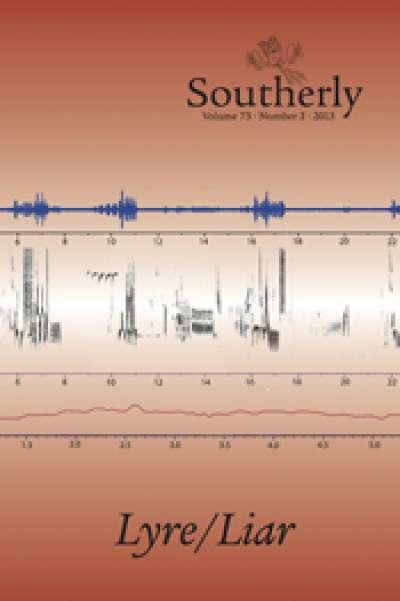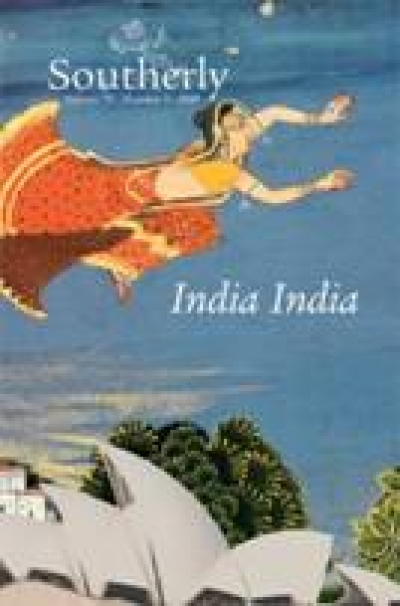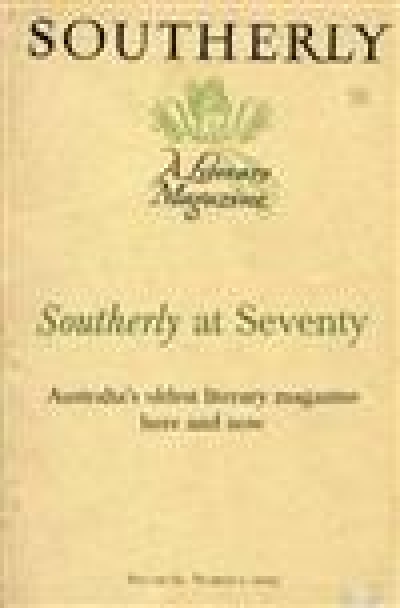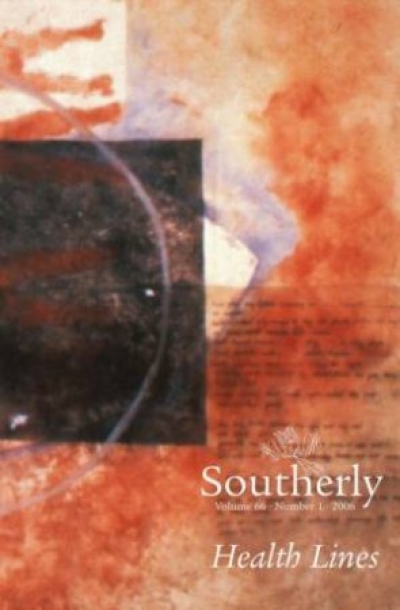Southerly
SOUTHERLY: VOL. 73, NO. 2 edited by David Brooks and Elizabeth McMahon
Southerly, Vol. 70, No. 3: India India edited by Santosh K. Sareen and G.J.V. Prasad
Southerly, Vol. 69, No. 2: Southerly At Seventy edited by David Brooks and Elizabeth McMahon
Southerly edited by David Brooks and Noel Rowe & Griffith Review 13 edited by Julianne Schultz (with Marni Cordell)
‘The best preserve of our humanity’, Ian Britain writes in his editorial to this edition of Meanjin (Only Human, 63:1, edited by Ian Britain $19.95 pb, 236 pp), remains words. Whatever ‘our humanity’ is, it is protected, kept alive, maintained, conserved – in language. ‘[C]ertainly’, he clarifies, in the ‘honed, considered words of the good … literary artist’, but perhaps even in ‘verbiage’.
... (read more)I would now like to begin with a plea for small literary magazines. I now have a vested interest in their survival (well, one, in particular), but then, I always thought I did. Little magazines are essential to the vitality of Australian literary and political culture. They play an important role in nurturing new poets, critics, storytellers, and reviewers. In the current book-publishing climate, there are few other opportunities for publishing short stories, experimental fiction, or poetry. Small magazines instigate and foster cultural debate and present a diverse range of opinions. Many of the most important issues in Australian public life today were first raised and discussed in literary magazines, including the stolen generations and racial ‘genocide’, the perils of economic rationalism and globalisation, the politics of One Nation, and the implications of new media technologies.
... (read more)



